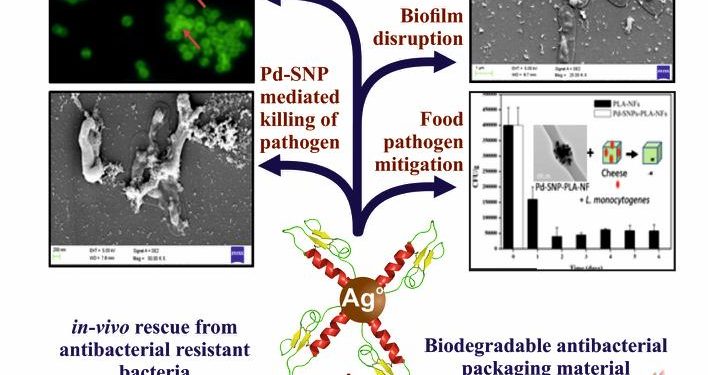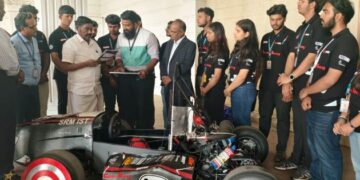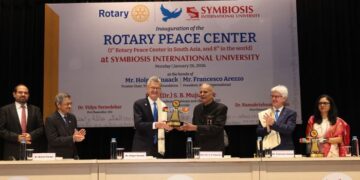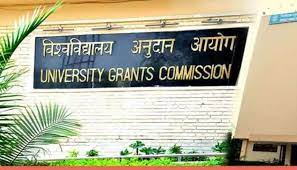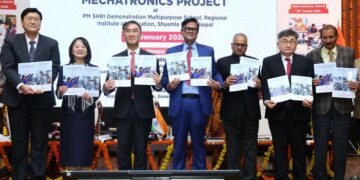A research team from Indian Institute of Technology Roorkee (IITRoorkee) have succeeded in developing a multimodal nanobiotic platform which combats bacterial pathogens. The nanoplatform leverages the synergistic antibacterial activity of a food-grade peptide (an antimicrobial peptide from Generally Recognized As Safe- GRAS category bacterium, Pediococcuspentosaceus) to mitigate multidrug-resistant bacterial pathogens. The technology platform has been shown to have applications in health sector and food packaging.
Prof. Naveen Kumar Navani and Piyush Kumar conceptualized the research and wrote the research paper; Piyush Kumar, Arshad Ali Shaikh, Pardeep Kumar, Vivek Kumar Gupta, Rajat Dhyani, Tarun Kumar Sharma, Ajmal Hussain, performed the research. The findings have been published in the American Chemical Society Journal-ACS Applied Materials and Interfaces.
Talking about the concept, Prof. Naveen Kumar Navani, Chemical Biology Laboratory, Department of Biosciences and Bioengineering and Adjunct Faculty, Centre of Nanotechnology, IIT Roorkee, highlighted, “Pd-SNPs, a nanobiotic platform serving a variety of biomedical uses, display unprecedented advantages because they are heat-resistant, retain antibacterial activity in human serum, and alleviate vancomycin intermediate Staphylococcus aureus (VISA) infection in the mouse model. In addition, Pd-SNPs wrapped in biodegradable nanofibers mitigated Listeria monocytogenes in cheese samples. It is interesting that the synergistic interaction of SNPs with pediocin would also lead to a significant decrease in toxicity associated with silver ions, which is a critical criterion for biomedical applications.”
Dr. Piyush Kumar,Post-doctoral Fellow, Chemical Biology Laboratory, Department of Biosciences and Bioengineering, IIT Roorkee,lead author of the paper said, “One of the attributes of a potent arsenal against MDR pathogens is long-lasting antibacterial efficacy. We investigated the ability of L. monocytogenes and VISA-ST1745 (specific types of antimicrobial-resistant bacteria) to acquire resistance against Pd-SNPs which displayed that bacterial pathogens were failed to evolve resistance against Pd-SNPs. The developed Pd-SNPs showed excellent biocompatibility when exposed todifferent mammalian cells. Furthermore, the results revealed that Pd-SNPs reduced the cellular invasion which shows that Pd-SNPs are able to reduce the virulence of clinical pathogens and invasiveness of both the clinical antibiotic-resistant Staphylococcus aureus pathogen.”
This research was supported by funding from Scheme for Transformational and Advanced Research in Sciences (STARS) initiative of Ministry of Education, Govt. of India.


